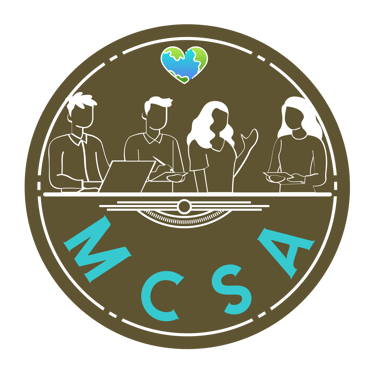
MIGRANTS' CITIZEN SCIENCE ASSOCIATION
Everyone belongs.
Background
Citizen science had its presence back in the 19th century known as community science or public participation in scientific research. At the onset of citizen science, the concept was referred to by various names, such as "amateur science," "popular science," and "volunteer monitoring." These terms were used to describe the involvement of 'non-professional individuals' in scientific research and data collection. Other names of citizen science in history had derogatory implications or explicitly narrowed their involvement as science believed to be exclusive for the elite white men and people belonging to the marginalized sectors like women, people of color, migrants, and so on are struggling to be recognized and therefore are inferior.
Aside from "amateur science," "popular science," and "volunteer monitoring," there have been several other terms used to describe citizen science as it progress. These include, "community science", "participatory science", "civic science", "cooperative science", "collaborative science", "grassroots science", "open science", "networked science", "distributed science", and "public participation in scientific research (PPSR). No wonder that up to the present, citizen science is an ambiguous concept. However, "citizen science" has become the most widely used term in recent years, as it highlights the active role of citizens in scientific research and put emphasis to the idea of science as a commodity. The commoditization of science allows it to estrange the public from participating and keep the hierarchy as rigid as possible to pour the resources into those who monopolized and has control over it.
However, the term "citizen science" has become more commonly used recently, as it turns its focus on the active participation of citizens in scientific research and development and reflects the idea of science as a public endeavor. One of the earliest projects of citizen science is the Christmas Bird Count, which was initiated by the National Audubon Society in 1900. This project involved volunteers counting birds in their localities and reporting their findings to the organization. Today, the Christmas Bird Count is one of the longest-running citizen science projects in the world. Another example of early citizen science is the weather observation network established by the Royal Meteorological Society based in the UK in the mid of 19th century. Volunteers were responsible for recording the weather data and sending their documentation to the RMS organization, which will be used later in weather forecasting and improving its understanding of climate patterns.
Currently, citizen science has become increasingly popular for its demand and positive results from the past, with the advancement of technology such as smartphones, the internet, and social media making it easier for people to participate in scientific research. Therefore, citizen science projects now cover a wide range of topics and issues, covering from ecology, environment, sustainability, and conservation to more complex fields like astronomy and genetics. Citizen science has also been recognized for its potential to promote social inclusion and diversity. The involvement of citizens from diverse backgrounds can bring new perspectives and insights to scientific research and development, and help ensure that the new knowledge generated is reflective of the diversity of the communities it serves.
The Migrants' Citizen Science Association (MCSA) is a non-profit organization based in Norway that was established in 2023. The organization is composed of migrant intellectuals from different fields of expertise who are dedicated to promoting the active involvement of migrants in citizen science activities. The organization recognizes the valuable perspectives and insights that migrants can bring to citizen science activities and aims to promote social integration and equitable research practices through their involvement. The MCSA was founded in response to the growing recognition of the potential of citizen science to address social issues and promote sustainable development. The organization believes that the active involvement of migrants in citizen science activities can help address the scientific, social, environmental, and political challenges faced by Norwegian and European society.

